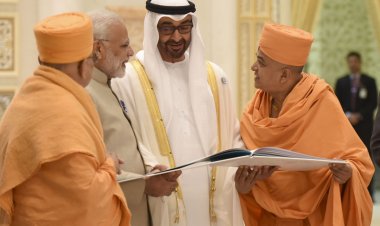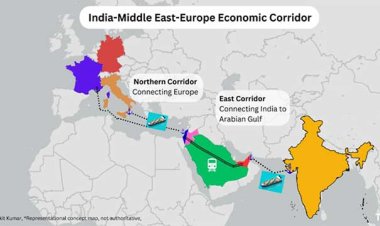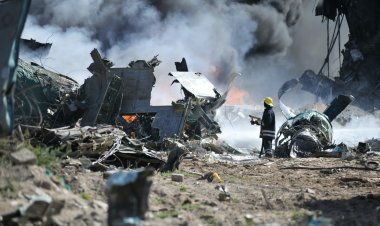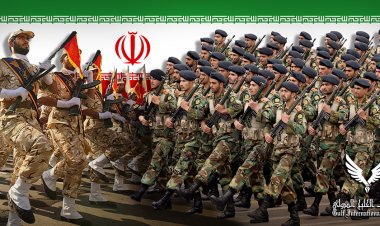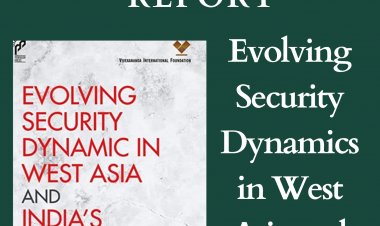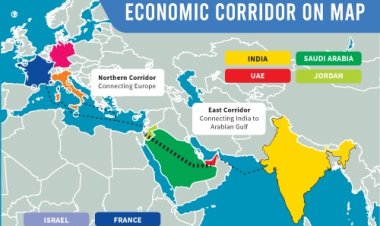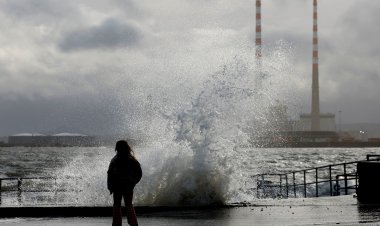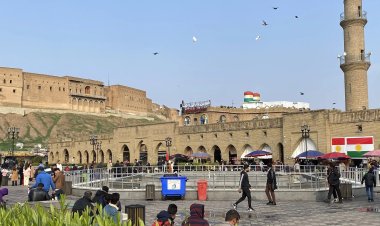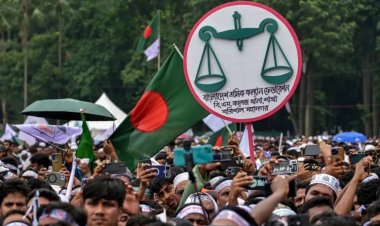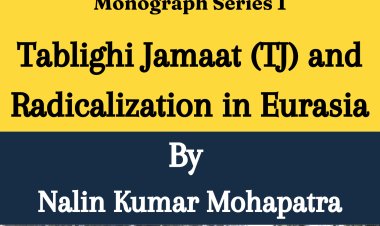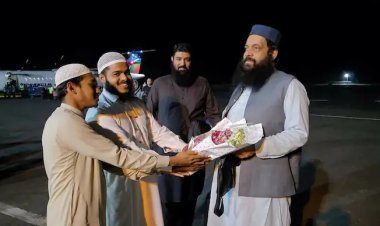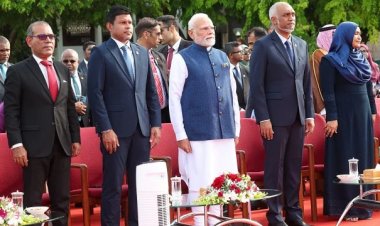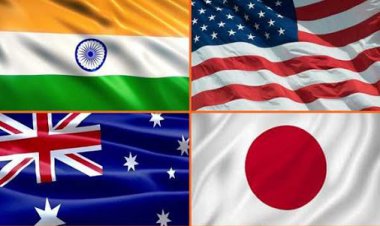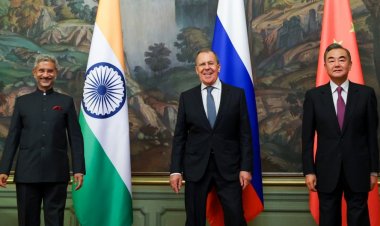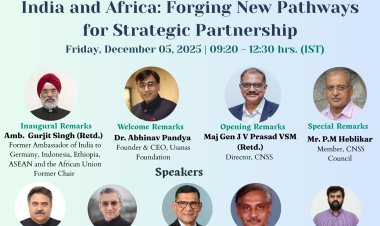Israel's Diplomacy and Foreign Policy
Webinar Report
Preeti Khenta
On June 23, 2021, The Usanas Foundation organized a panel discussion on Israel's Diplomacy and Foreign Policy, with a star-studded panel consisting of distinguished scholars from Israel's strategic community — Dr Emmanuel Navon, Lecturer at Tel Aviv University and a Senior Fellow at Jerusalem Institute for Strategy and Security and Kohelet Policy Forum, Dr Sarah–Masha Fainberg, Foreign policy and security Adviser, Lecturer at Tel Aviv University and a Visiting Professor at School of Foreign Services, Georgetown University, and Ms Nina Slama, Guest Lecturer and Teaching Assistant, IDC Herzliya. The event was moderated by Mr. Abhinav Pandya, Founder and CEO of the Usanas Foundation.
Dr Emmanuel Navon-
- Israel's international standing has never been so good despite the unsolved conflict with the Palestinians. Israel's international standing has improved dramatically in recent years, including normalization with few Arab countries such as United Arab Emirates, Bahrain, Morocco, Somalia, and other countries around the way.
- Israel in the late 1950s found itself in a diplomatic dead-end which is why our Prime Minister at the time, Ben Gurion, decided to think out of the box and initiate a policy which is called the policy of the periphery which consisted in establishing alliances with countries in the wider middle east with which Israel has common interest and common enemies. Israel, of course, had a conflict with the Arab world and also with the Soviet Union and therefore its greater relations with the middle east that was also in conflict with the Soviet Union and the Arab world and those countries are mostly Iran, Turkey as well as Ethiopia and also minorities like Kurds, northern Iraq, Christians in South Sudan and Lebanon. And this strategy worked out pretty well because, indeed, Israel in the 1960s established a very close relationship with those countries.
- Iran, in fact, before the Islamic revolution of 1979, was a very close ally of Israel. It was the main supply of oil, and Israel and Iran had close military relations. Iran was concerned by the Soviet threat in the Middle East, and it had a historical conflict with the Arab world and with Iraq, and therefore, strategy based on the periphery, based on the principle of the enemies of the enemy is my friend, same thing with Turkey. Turkey is also a non-Arab country in the middle east and talking about Turkey in the 1960s, way before the current Islamic regime of Erdogan. At the time, Turkey was a secular Republic and very much opposed to Soviet Union influence and resentful of the Arab because of the way Arab leaders dismantling the Ottoman Empire during the First World War, and Turkey was already back then a member of NATO. Basically, Turkey and Israel cooperated to oppose Soviet influence and the Arab nationalism promoted by Egyptian President Sadat. Israel, Turkey, and Iran even established a trilateral intelligence agency to fight Soviet influence in Arab nationalism.
- The strategy worked pretty well throughout the 1960s and the mid-1970s. First of all, Ethiopia got last because of the pro- Marxist Revolution, a rebellion in 1974 where there were no longer allies of Israel, and the Islamic Revolution in Iran in 1979. So, Iran, from an ally, became an enemy and Turkey also eventually lost.
- The very concept of the periphery is still relevant but has gained a new impetus; there are new alliances around Israel vis a vis Iran vis a vis Turkey. When it comes to Iran, the Sunni Arab state of the Gulf consider Israel as their most reliable ally in the Middle East to face Iran, and this explains the normalization between Israel and the Arab states in recent years.
- Israel has created a relationship with Cyprus, Greece, countries that did not have great relationships with Israel in the past, but it has also created significant relations with regional allies like Azerbaijan against Iran, and therefore we have today is the 'new periphery' and also the reversal of the old periphery. In 1960 the periphery of Turkey ran against the Arab world. Today it is the opposite of the Arab world against Iran and Turkey. It's the de-facto alliance- the Arab world and part of the Arab world.
- The prices of oil have been declining for the past ten years, and this tendency will continue. The oil countries will know very well that their economic model is not sustainable, and they admitted openly, to be successful, the economic model needs technological innovation in the Middle East, and when it comes to our new alliance Cyprus and Greece here also the energy factor plays an important role. The fact is that since 2010 Israel has become a major player in the field of natural gas. Cyprus also has a significant natural gas resource. So together, Cyprus and Israel have become significant players in the field of energy, and therefore you have this project of building a huge pipe; the line between Israel, Cyprus & the EU, which Turkey very much opposes so you can see the complete reshaping of Israel regional alliances not only due to geopolitics but also to the 'energy factors’—major changes in the energy market.
- In the 1960s, it was a periphery together with Iran & Turkey against the Arab World. Today it is a periphery with the rest of the Arab world and all allies such as Azerbaijan, Greece against Iran, and Turkey.
Dr Sarah- Masha Fainberg-
- How does Israel, which over the years has become the staunchest ally of the US in the Middle East, approaches the Russian question both in the global arena and in the Middle East? What is the rationale behind Israel moves and Israel decisions vis a vis Russia? Let us not forget that the Soviet Union was the first country in the east to grant de-jure recognition to the young Jewish state. In contrast, the US granted a de-facto recognition initially under President Truman.
- For Israel, "why Russia" is the new question is to assess in light of four major and critical developments:
- The first element is the Global US- Russia confrontation, as US-Russia relations have reached the lowest point since 1991. The question for Israel MFA or MoD is that Israel belongs to the West and should join the US- EU overly confrontational and pervasive policy vis a vis Russia. Russia is defined by the US as the biggest threat to the US national security interest, and Israel doesn't join the West. Israel diplomacy and Israel diplomatic decision making are most foremost determined and defined by the security establishment thinking. When it comes to Russia, there is a weight of the ministry of defence and other security bodies to determine the right diplomatic move vis a vis Russia.
- The second development is the gradual and consistent withdrawal of the US presence from the Middle East at large and especially from Afghanistan. In other theatres of operation, whether it is related to the renewal of the nuclear talk and the decision of the US to reach a nuclear deal with Iran—the fact of the matter is that Israel needs to confront this vanishing presence of the US in the middle east arena that goes hand in hand with strengthening the Russian and Chinese diplomatic, military and economical energy presence across the Middle East.
- The third element is Russia's deepening geopolitical stronghold across the Middle East. In the Eastern Mediterranean and Yemen, as we speak, Russia is considering opening a new base. Military base in Yemen and further its Economic interest in the energy, nuclear and military-industrial sectors.
- The fourth critical element is, of course, Russian military intervention in the Syrian frontlines that officially started in September 2015; de facto Russia established and continues to expand on its military foothold in the East Mediterranean.
- Israel's foreign policy vis a vis Russia is based on the built-in dichotomy or built-in paradox. At the bilateral level, the ties between Israel and Russia are just thriving, and this is based on intense peoples' contact. Israel is home to a 1.5 million Russian-speaking population, and those relations flourish in a variety of domains from trade to cultural relations or joint, collective memory projects yet from a regional perspective. Israel and Russia repelled with almost irreversible disagreement on the issues that each side sees as critical to each on national security interest or power protection. This is, of course, Iran's Nuclear Ballistic Region, Syria, and the Palestinian question. So, at the regional level, Israel and Russia are on a very tightrope; they are like two tango dancers.
- The official Israeli discourse is that we have one strategic ally, and this is the United States. Neither Russia nor China will replace this position, and yet Russia is not an enemy. Russia is a part of Israel's foreign policy design to widen its diplomatic outreach of Israel from the Arab peninsula to Brazil and India, of course, Russia.
- Russia is part of Former Prime Minister Netanyahu's grand design of expanding and deepening. Israel's relation with the world's global power meaning Russia, India, Brazil, and other powers. This idea enters Israel in the concert of the big nations.
- The wisdom of Russian is to act in a non-Soviet, non- Cold war way. Russia is not ideological in its approach and coldly pragmatic and has developed ties with almost all the major actors of the Middle East.
- Russia seeks to gain political evidence by acting as a mediator between those countries and think between those countries. Russia is the only stakeholder in the Middle East that can speak Farsi to the Iranian and Hebrew to the Israeli, and up until now, they have done it very skillfully and in a very sophisticated way. They were able to maintain close relations with Iran and Jordan in a way that if a third Lebanon war erupts or the third northern war erupts on the Lebanese, Syrian or Iraqi front, Russia would be the only power to be able to mitigate to act as a backchannel to communication between Hezbollah and Israel and this is the position Israel values that Russia seeks to serve all the time and up until now it has been unable to do so, but this option is on the table.
- Iran has the ambition of expanding its military stronghold and demographic power in Syria, while the Russian approach is all about blaming and containing the power of every stakeholder involved in Syria to keep its military and economic assets in Syria. In a way, the implicit deal between Russia and Israel is to allow Israel to conduct its airstrike in Syria by turning a blind eye and for Russia to enjoy the blind effect of Israeli airstrikes in Syria that contribute to limiting Iran's influence in the future of Syria.
- I would say that the development of Russian- Israel relations is, first of all, maybe a testimony of the empowerment of Israel. If we take a long-term approach, we do remember that Jews in the terrorist empire there, the first thing they wanted to avoid was to be recruited into the army of Assad. Here suddenly, you have Russian speaking Israeli soldiers negotiating with Russian soldiers in Syria at an equal level, and this is an image of resilience and may be of the triumph of Israeli sovereignty.
- Israeli model of keeping a very practical channel of communication with Russia of maintaining some kind of minimal dialogue even at the time of crisis is certainly a model that could inform the US, European and the Western approach.
Nina Slama-
- The relations between India and Israel were not so good at the beginning. Israel has always wanted to have good relations with India since its inception in 1948. Still, India was reluctant to do so because of domestic, regional and international considerations. On the domestic level, India didn't want to alienate the Muslim minority. It was afraid that if it will be closer to Israel, the Muslim community will feel it will get far away from the Arab and Muslim world. India didn't want to disunite its community, especially after the Partition. On the regional level, India didn't want to alienate the Arab countries because it was afraid that these countries will eventually side with Pakistan on the issue of Kashmir, and India wanted to have good relations with the Arab world.
- On the international level, India was the leader of the Non-Alignment Movement. It didn't want to side with Russia or the United States. Israel was an ally of the United States and India didn't want to have any relation or anything to do with the US. It was only in 1992 when former Prime Minister Narsimha Rao came to power that he was able to establish relations with Israel because the entire international arena changed. There was a transformation of the international system; there was the dissolution of the Soviet Union, which enabled the approach to transform India's whole foreign policy not only towards Israel but also the West.
- India wanted to be closer to the United States, and the way to do so was to establish relations with Israel. These relations were established in 1992, but they became strategic under Prime Minister Atal Bihari Vajpayee—who saw in Israel not only an ally but also a friend. When both Pakistan and India launched their nuclear experiment, the entire international community boycotted India. The only country that was willing to help India militarily in the Kargil war against Pakistan was Israel. It was not the first time Israel assisted India in its wars. It also occurred during the wars against China in 1962 and against Pakistan in 1965 and 1971, when there were no relations between the countries.
- Vajpayee wanted to establish a strategic triangle between Israel, the United States, and India in its war against terrorism, especially after the 9/11 terrorist attack, in New York. When former PM Manmohan Singh came to power, there was a fear in Israel that there would be a kind of deterioration between the countries, but the opposite occurred. The relations extended. PM Singh not only fulfiled the agreements which were signed during Prime Minister Vajpayee tenure but also signed other agreements with Israel.
- When Prime Minister Modi came to power, we could see that the relations not only became better and strategic but also very close and personal between PM Benjamin Netanyahu and PM Modi. When PM Modi won his first term in 2014, PM Netanyahu called him and congratulated him over the phone for his political achievement. Both leaders were also communicating on social media in order to express their support for each other and wishing good wishes during Jewish holidays and Indian festivals. It was interesting to see how close and deep the relationship between the countries was.
- It doesn't matter who will be in power in both countries; the relation will continue to grow and extend into multiple domains, such as military, agriculture, innovation, water management, culture, academics, and so forth.
Disclaimer: All opinions expressed in the Webinar belong to the speaker and are not reflective of Usanas Foundation.

